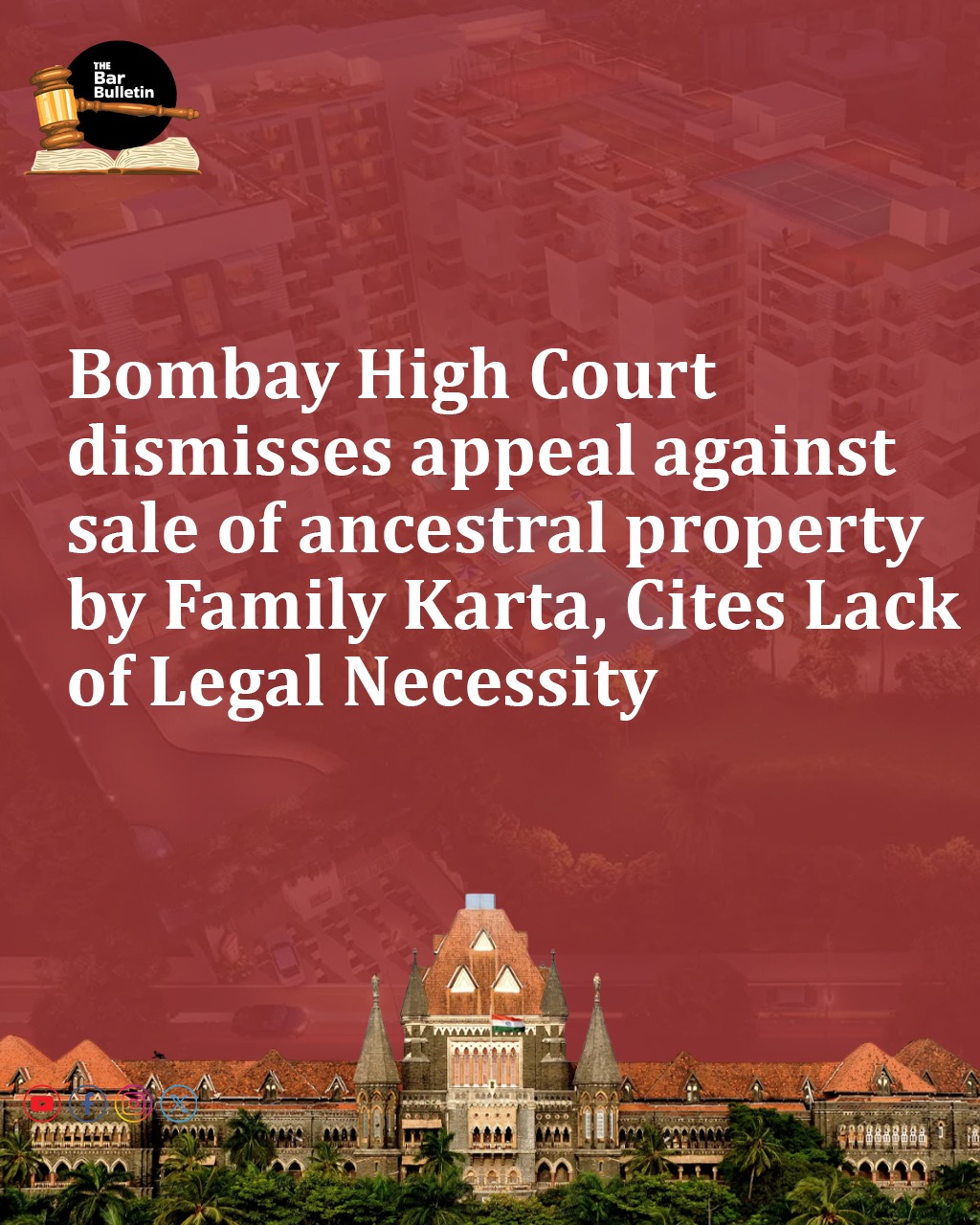The Bombay High Court dismissed a second appeal challenging the sale of joint family property by the Karta (manager), finding that the sale lacked legal necessity. In line with its duty under Section 3 of the Limitation Act, 1963, the Court also called upon the parties to address whether, in the circumstances of the case, Article 110 of the Act could apply for the purpose of limitation.
The appellants contended that because the notice from the Talathi dated 2002 was not on record, the 2005 suit was barred by limitation and could not be saved by Article 59 of the Limitation Act. They argued that the suit property was agricultural land, not a residential unit, so Section 44 of the Transfer of Property Act would not be applicable, and the appellant could not be considered in joint possession. As far as Article 110 is concerned, they contended that the plaint sought a declaration against the sale deed, not enforcement of a right to share, and thus Article 110 would not apply. They relied on Kalipada Chakraborti v. Palani Bala Devi .[1], arguing that a specific limitation article should prevail when it clearly covers the case.
The controversy arose in 2002 when the Plaintiffs received a notice from the Talathi regarding a proposed mutation entry in the revenue records. Upon inquiry, they discovered that Defendant No.2, acting as the Karta, had already sold the joint family property to Defendant No.1 through a registered sale deed dated 08.02.2001, without their knowledge or consent. Defendant No.2 was served with summons in the suit but failed to appear, and the matter proceeded ex-parte against him, which the Court noted as significant.
The Court, however, rejected the appellant’s argument and dismissed the second appeal, holding that no question or suggestion regarding limitation was put to the plaintiff’s witness in cross-examination. It noted that the plaintiffs’ version, receiving notice from the Talathi on 28.01.2002, went unchallenged, and therefore the factual finding that the suit was filed within three years from the date of knowledge was rightly accepted. The Court clarified that since the suit involved a third-party purchaser, Article 110 of the Limitation Act was not applicable, and Article 59 was rightly invoked. The concurrent findings of the trial and first appellate courts were upheld and did not warrant interference, relying on Smt. Parmeshwari Devi v. Mantoo Lal and Sunil Kumar v. Ram Parkash, Smt. Parmeshwari Devi v. Mantoo Lal and Ors.[2] and Sunil Kumar v. Ram Parkash[3]
Justice M.M Sathaye while dismissing the second appeal, noted that no question or suggestion regarding limitation was put to the witness. As a result, the factual finding, that the suit was filed within three years from the date of knowledge of exclusion, and the consequent application of Article 59 of the Limitation Act were concurrently held in favour of the Plaintiffs and did not warrant interference. The Court also clarified that the decree merely declared the sale deed as not binding on the plaintiffs, since no prayer for partition or possession had been made. A four-week stay was granted on the operation of the order to enable the appellants to seek further remedies, if advised.
Appearances:
Mr. Niranjan A. Mogre a/w. Mr. Sujay H. Gangal & Mr. Swaraj M.
Savant, Advocates for the Appellant/Applicant.
Mr. Shriniwas S. Patwardhan, for Respondent Nos. 1 to 6.
[1] Kalipada Chakraborti v. Smt. Palani Bala Devi [AIR 1953 SC 125]
[2] Parmeshwari Devi v. Mantoo Lal [1980 SCC OnLine All 709
[3] Sunil Kumar v. Ram Parkash [(1988) 2 SCC 77]
![]()
Vijay Shridhar Ghare v. Ashok Narayan Shinde Preview PDF



